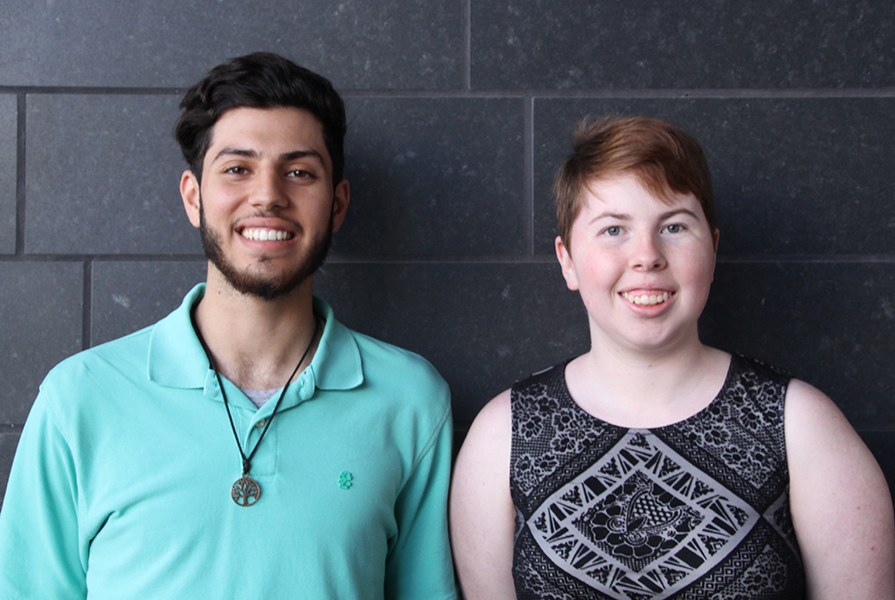
For Mohamed El-Farra, medicine does not stop at the disease or the injury.
“I want to create a holistic type of medicine. I want to bring in people’s backgrounds and see the people within it, rather than keeping the science separate,” said El-Farra, who is graduating with a progressive degree in the master’s program in stem cell biology and regenerative medicine at USC.
El-Farra wants to understand patients in more than just the context of a diagnosis or a medical chart. His approach to medicine does not turn a blind eye to marginalized populations; instead, he places them at the center of his work.
After leaving two years early from Saint Francis High School in La Cañada, California, El-Farra pursued a bachelor’s degree in health promotion and disease prevention at USC, explaining, “I didn’t want to be a standard biology major. I wanted to experience science where it wasn’t just about cells, and more about interacting with people.”
He and his sister established SALMA<3 (Save a Life, Move a Heart), a student-initiated humanitarian organization that works to spread awareness of homelessness while attempting to break the cycle through various charity events. The branch of SALMA<3 that he started at USC focuses on opening dialogues about the health and safety of vulnerable individuals.
However, his work has not stopped there: his current research focuses on preventative medicine as it relates to drug users on Skid Row, and he is conducting a series of interviews and interventions to make a personal difference in their lives. When talking about his work, El-Farra brings up a multitude of questions: “Can counseling one-on-one change drug use? Can we get them to stop? Can we talk to vulnerable populations before drug use?”
El-Farra plans to forge ahead with new projects aimed at assisting marginalized individuals. He is already looking towards medical school with his sights set on becoming a surgeon.
Embodying the Hippocratic oath “that warmth, sympathy, and understanding may outweigh the surgeon’s knife or the chemist’s drug,” he will continue working with disadvantaged populations, trying to make a direct and personal difference through progressive dialogue and science.
The author of this article, Anna Konecny, also graduated from the master’s program in stem cell biology and regenerative medicine program at the Keck School of Medicine of USC.




